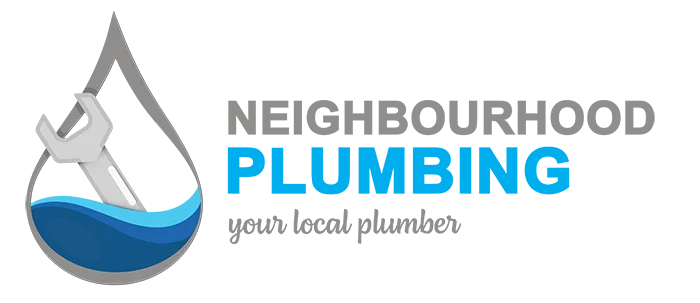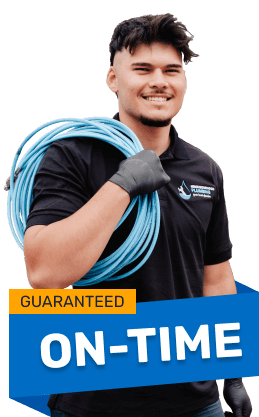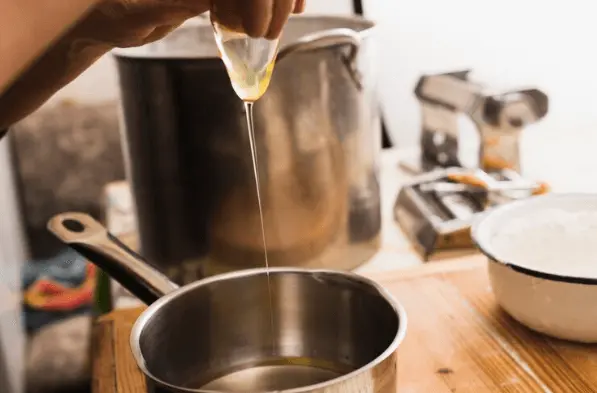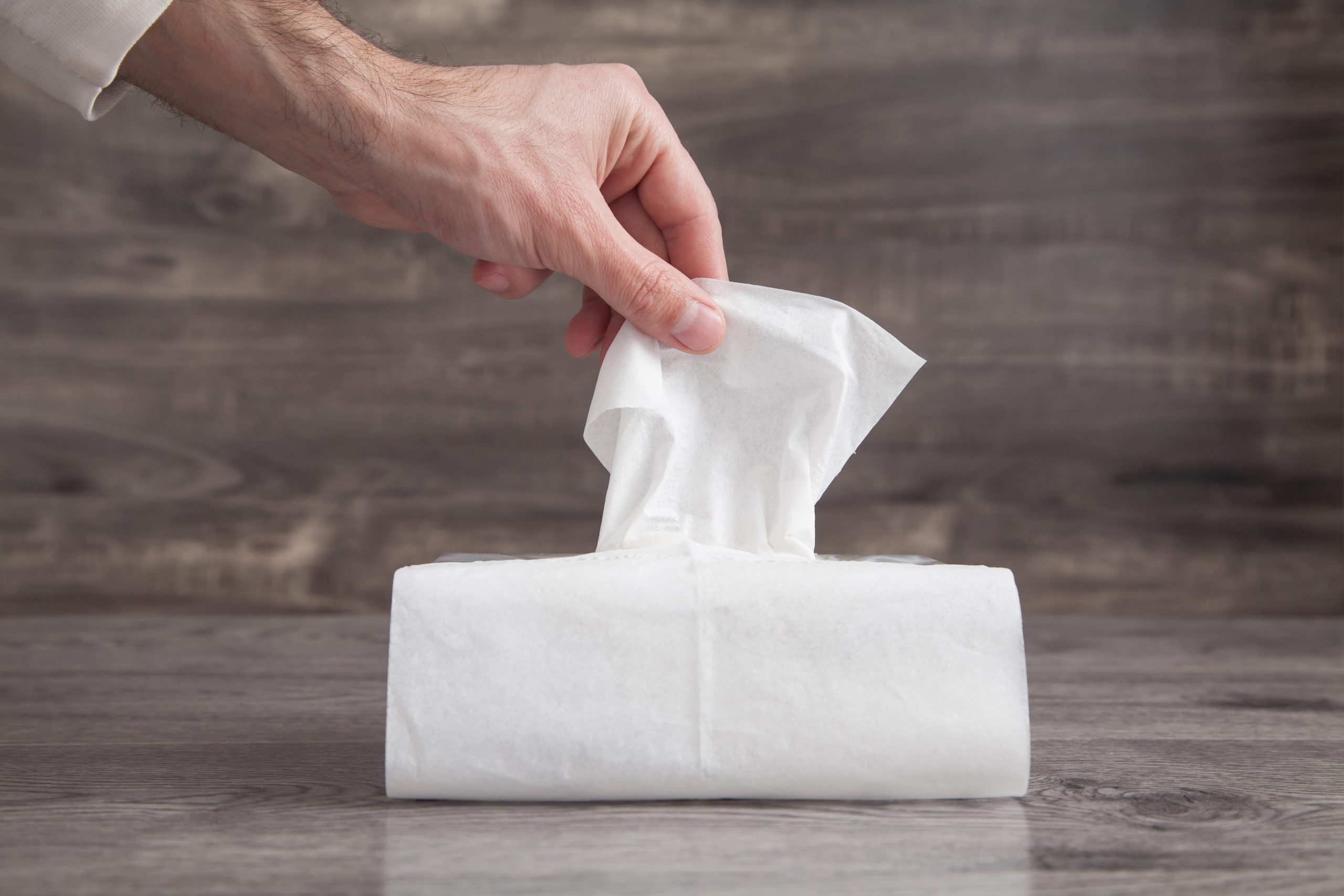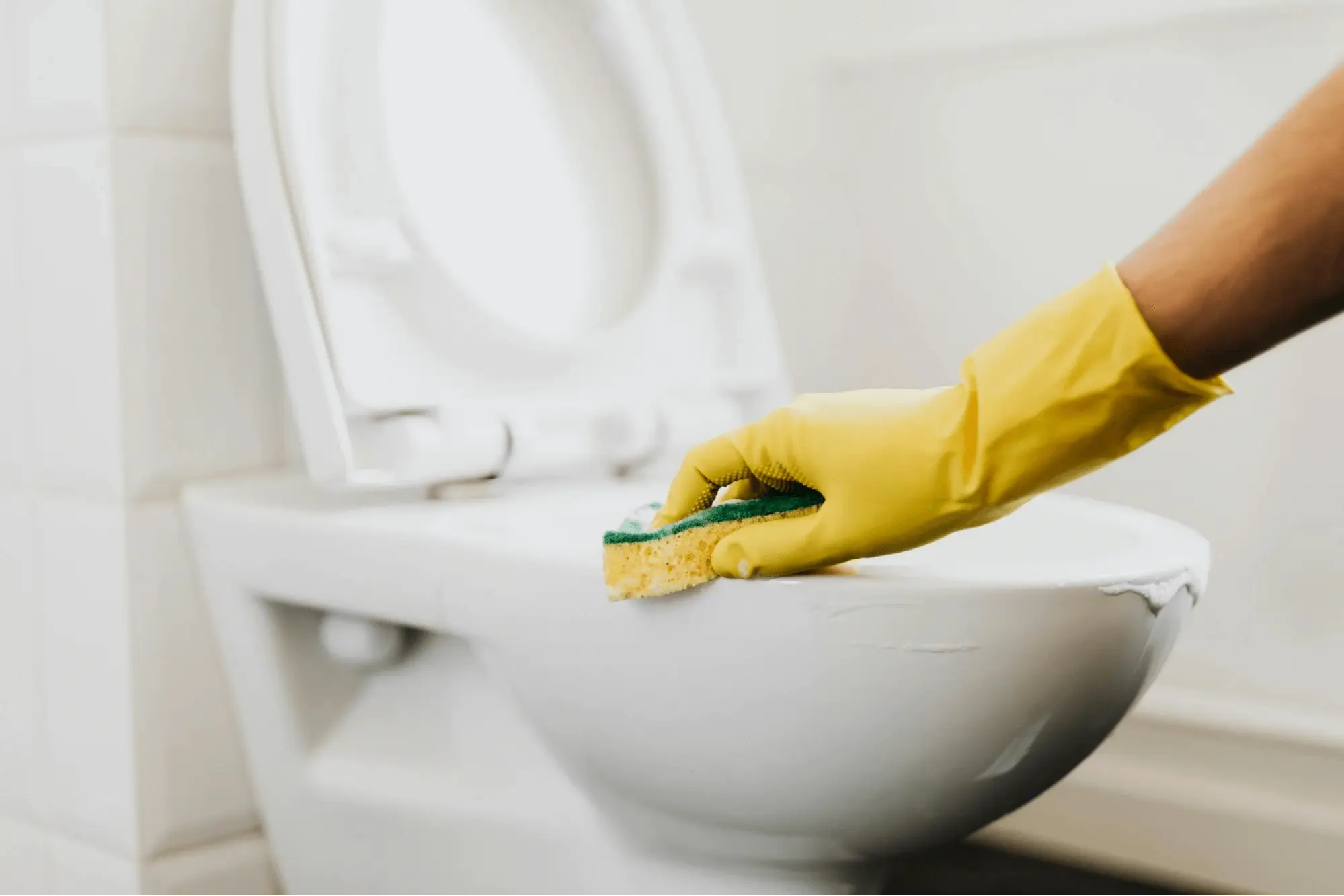
Imagine this: late night, you dash to your bathroom, half-asleep and desperate. Focused on your mission, you miss the slow drain and wonder about the strange gurgling noise.
Bad news. Those are signs of blocked drains. The blocked drains will 100% ruin your holy routine.
This is why understanding how to prevent blocked drain can save your time and money. You’re free from the hassle of calling a Melbourne plumbing service (unless you insist).
Ready to channel your inner Sunbury plumber? Let’s explore the world of drain blockages!
How to Prevent Blocked Drain in 10 Ways
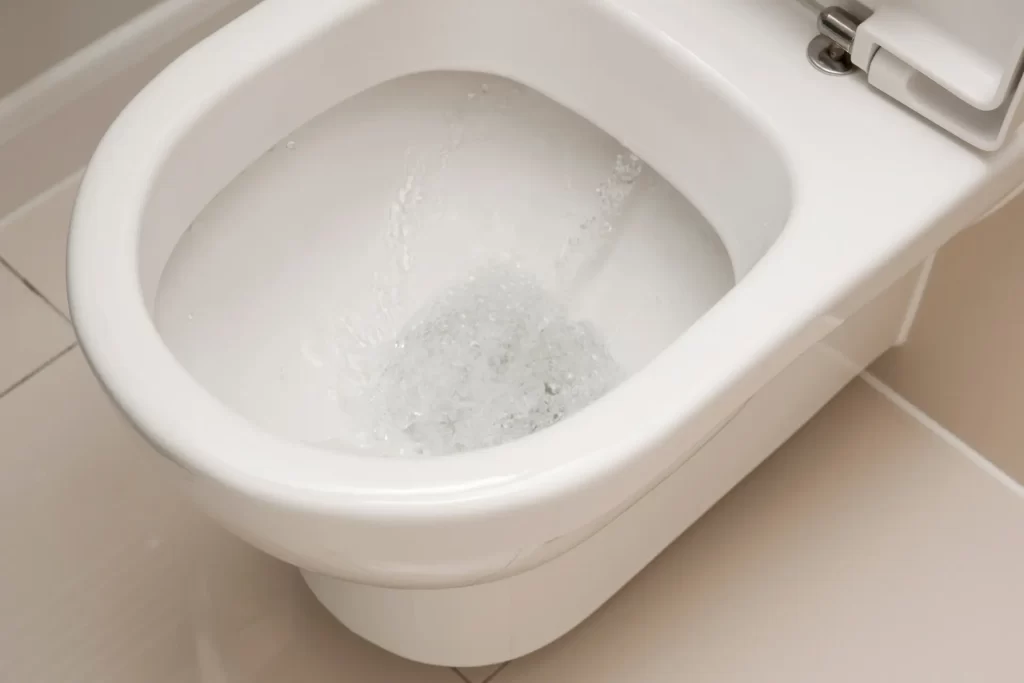
Before learning how to unblock a drain, prevention is often easier than the cure. So, let’s dive in and discover how you can prevent the signs of blocked drains and keep your toilet flowing freely.
1. Conduct Daily Cleaning
A quick daily clean goes a long way. After washing dishes or using the sink, wipe down the area and remove any food scraps or debris. This prevents them from accumulating and causing a blockage. Remember, a few seconds of cleaning each day can save you hours of plumbing work later.
2. Use a Drain Cover
Drain covers are an easy and affordable way to prevent blockages. They act as a barrier, catching hair, food scraps, and other debris before they enter your pipes. You can find drain covers for your sinks, showers, and even outdoor drains.
Simply place them over the plughole and remember to clean them regularly to ensure they continue to do their job effectively. This simple addition can save you from a lot of plumbing headaches in the long run.
3. Flush Your Drain Properly
After washing your hands, brushing your teeth, or shaving, or washing dishes, flush your drain with a generous amount of water. This helps to move any debris down the pipe and prevents it from sticking to the sides. It’s a good habit to get into, especially after washing greasy dishes or using oily products.
4. Avoid Putting Strange Objects Into Drains
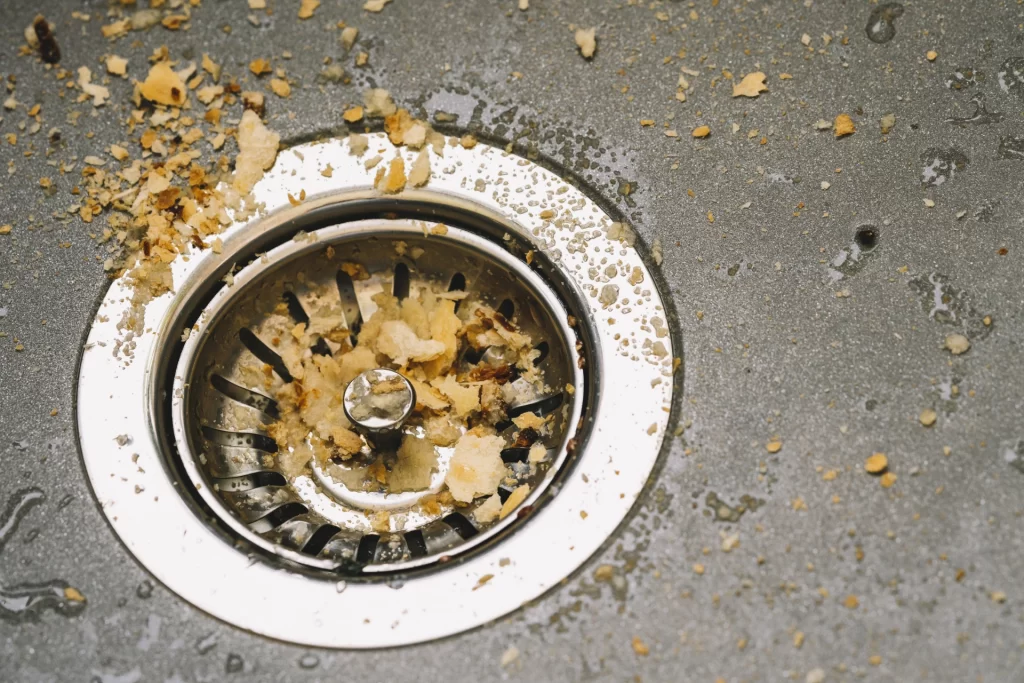
A common cause of a blocked drain is simply putting things down that shouldn’t be there. Your drain isn’t a trash can, and it’s not designed to handle everything. Avoid pouring grease, oil, or fat down the sink, as these can solidify and cause blockages.
Coffee grounds, tea leaves, and food scraps should also be disposed of in the bin, not the sink. Even seemingly harmless items like cotton buds, dental floss, and hair can accumulate and create clogs over time.
Remember, only water, soap, and human waste should go down the toilet, and the kitchen sink is for washing dishes, not disposing of food waste. By being mindful of what you put down your drains, you can prevent unnecessary blockages and keep your plumbing system flowing smoothly.
5. Collect Your Hair Before Using the Bathroom Drain
Hair is a common culprit for blocked drains, especially in the shower. Before you hop in, brush your hair to remove any loose strands. Consider using a hair catcher or drain cover to collect hair before it goes down the plughole.
6. Never Pour Greasy Objects Down the Drain
Grease and oil are major enemies of your drains. They solidify as they cool, creating a sticky mess that traps other debris and forms a blockage. Instead of pouring them down the sink, collect them in a container and dispose of them in the bin.
This applies to the foods remaining on the plate. Make sure you wash the oily plates with dishwashing detergent to break the grease.
7. Get Rid of Grease Before It Solidifies
If you do accidentally spill grease down the drain, act quickly. While it’s still warm and liquid, flush it with warm water and dishwashing detergent.
For the best result, pour a generous amount of the detergent and leave it for around 10 minutes. This can help to break it down and prevent it from causing a blockage.
8. Use a Plunger Periodically
Even with the best care, your drain might slow down over time. Don’t wait until the drainage block starts to form. Just start using a plunger immediately.
A plunger can help to dislodge minor blockages. Fill the sink with a few inches of water, place the plunger over the plughole, and pump it up and down vigorously.
9. Dispose The Food Wastes Properly
If you have a garbage disposal, use it for food scraps, but don’t overload it. For items that aren’t suitable for the disposal, like coffee grounds or fibrous vegetables, compost them or throw them in the bin.
Food wastes are indeed biodegradable, but doesn’t mean you can let them sit on your drain pipes. They can block the drain, bringing in foul odours and creating a bigger mess.
10. Check the Flow Every Day
Make it a habit to check the water flow in your sinks and shower every day. If you notice the water draining slower than usual, it could be a sign of a developing blockage. Addressing it early is much easier than dealing with a full-blown clog.
Why Does My Drain Keep Getting Blocked?
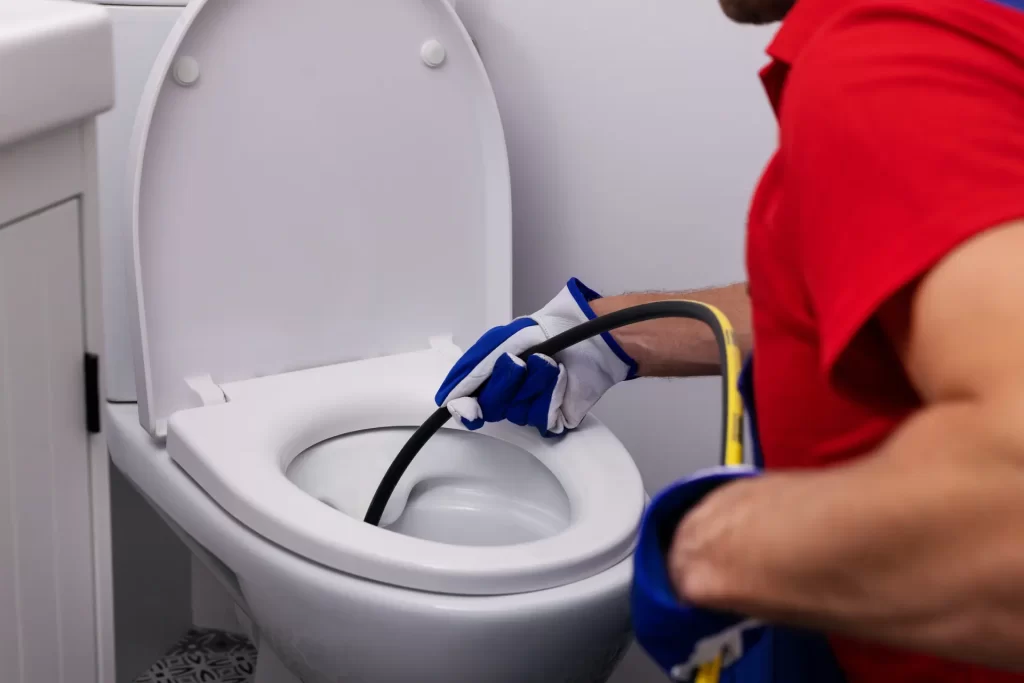
Even with the best preventative measures, sometimes drains can still get blocked. Unfortunately, not all blockages are within our control. External factors can play a significant role, often requiring professional help to resolve.
One common culprit is tree roots. As they grow, they seek out water sources, and your drains can become a prime target. The roots can infiltrate the pipes, causing blockages that are difficult to remove without specialised equipment.
If you suspect tree roots are the issue, it’s best to call a plumber in Sunbury or wherever you are to investigate and take appropriate action.
Another possible problem lies within your home’s plumbing system. A faulty pipe, a poorly installed drain, or a buildup of sediment over time can all lead to blockages. These issues usually require a plumber’s expertise to diagnose and fix.
In some cases, the blockage may not even be on your property. Problems within the larger plumbing system in your neighbourhood, such as a blockage in the main sewer line, can cause backups in your home’s drains. This is usually a matter for the local water authority to address.
It’s important to remember that while prevention is key, not all blockages are preventable. If you’ve tried all the usual solutions and your drain is still blocked, don’t hesitate to call a professional. They have the tools and expertise to diagnose the problem and provide effective solutions.
How Can I Keep My Drains From Clogging?
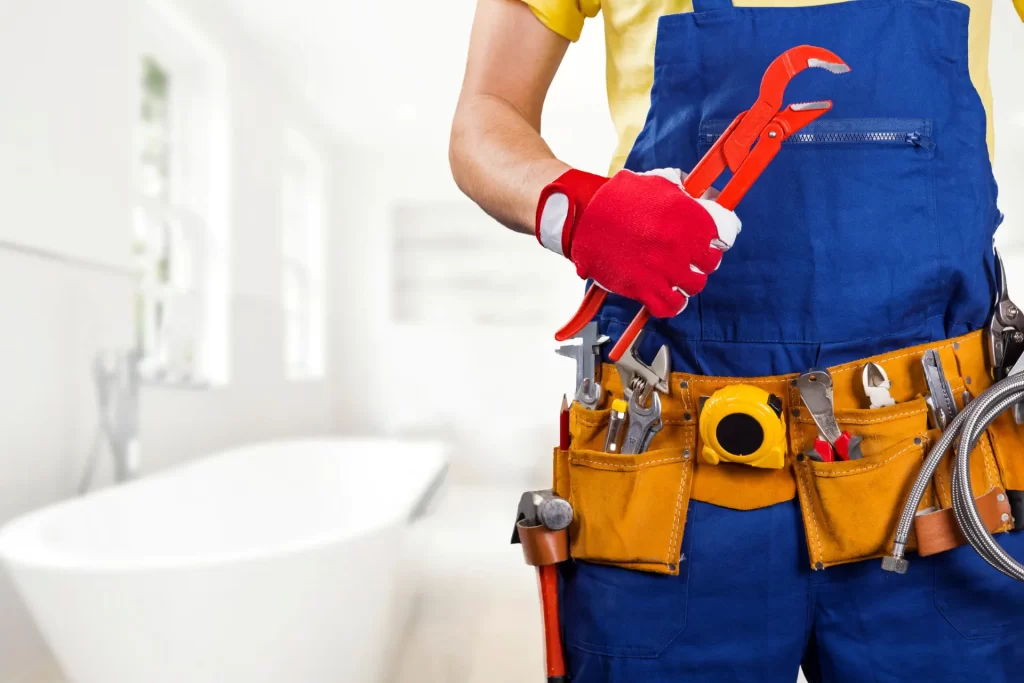
In addition to the prevention steps mentioned above, there are a few more things you can do to keep your drains running smoothly. First, make sure your home’s plumbing system is in good working order. Inspect your pipes regularly for leaks or cracks, and replace any old or damaged ones.
Consider installing a cleanout, an access point in your plumbing system that allows for easier cleaning and maintenance. Cleanouts are typically located outdoors, and they provide a direct route to your main drain line, making it simpler for plumbers to clear blockages.
If you’re unsure about any aspect of your plumbing system, it’s always best to consult a professional. They can assess your drains, identify potential problems, and recommend the best course of action. Remember, prevention is key, but a well-maintained plumbing system is your best defence against stubborn blockages.
Conclusion
Keeping your drains clear is a matter of prevention, maintenance, and knowing when to call for help. By following these simple tips and ensuring you know how to prevent blocked drain, you can avoid the inconvenience and mess later.
Remember, if you encounter a blockage or just want to replace your old pipes, don’t hesitate to contact Neighborhood Plumbing. Our experienced plumbers are ready to assist you with all your drainage needs!
About the Author
From unclogging the toughest drains to repairing leaking toilets, Ricky is a seasoned plumber who has brought his craftmanship to homes across Melbourne. He is passionate about sharing plumbing tips just as much as he is about fixing your plumbing issues. So, when your taps or pipes begin leaking, you know who to call.
